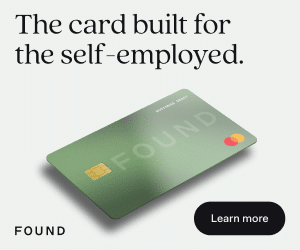No matter how careful you are, if you’re in business long enough, you’re going to screw up. Bad.
(Not the “my bad, I sent over the wrong revision.” The big “we just printed 3000 brochures with the client name misspelled.”)
Or you won’t be able to do something your client desperately needs you to do.

Get Weekly Freelance Gigs via Email
Enter your freelancing address and we'll send you a FREE curated list of freelance jobs in your top category every week.
It happens. And it sucks.
And you’re agonizing over telling your client. There’s no good way to share bad news, is there? (Hint: yes, there is!)
Here’s what to do:
1) Acknowledge the issue
Part of solving any client problem is making them feel heard. (Sometimes that’s all they want!)
Always start out with acknowledging the spot your client is in. By empathizing with them, they feel like you understand why this is so important to them.
They feel like you care; like you “get it,” and that you’ve been in their position before and want to help them out of it.
Example: I understand your reputation is on the line, and I’m going to do everything in my power to fix <whatever’s wrong>.
or I know you’re feeling pressure from your manager, and I’m working tirelessly to <do whatever it is that will resolve the issue>.
2) Apologize if you’re in the wrong
If it’s your error, apologize. Be humble and ensure that it will never happen again. (And here’s how to actually make sure it won’t happen again.)

BUT, if it’s not your fault, don’t accept blame for it.
In tough, high-stress situations, everyone is looking for a scapegoat. Apologizing for something that’s not your fault (even a tiny “I’m sorry!”) can shift the unwarranted blame to you.
Pro tip! If you’re going to say “I’m sorry” when it’s not your fault, clearly specify what you’re sorry about so that it’s clear you’re not at fault.
Example: I’m so sorry you’re having trouble with your hosting company.
3) Focus on the solution
…not the problem.
Of course, you’ve got to address exactly what the issue is, but move quickly through it and get to what you’re going to do about.
By presenting potential solutions, you’re doing several very vital things:
- Showing you’re willing to be part of the solution.
- Speeding up the problem-solving phase so you can quickly correct the problem.
- Keeping the tone of the conversation as positive as possible.
Example: I’m not able to do X, but here’s what I can do: Y or Z. Do either of those work?
Good communication is key!
Bad news is tough to break, but it’s all in how you say it rather than what you’re saying.
If you can redirect your client from dwelling on the negative to focusing on the positive solution, they’ll remember you as the one who saved the day and made it right (even if it was your mistake in the first place).
Share your success story
Have you ever been in a tight spot with a client and saved the day? How did you break the bad news to your client?
Share your story in the comments! I’d love to hear it.

Keep the conversation going...
Over 10,000 of us are having daily conversations over in our free Facebook group and we'd love to see you there. Join us!




Once I was given a very difficult task by my cloent. I clearly knew I cannot do it in the first place. However what I did was I emphasised the special importance to that problem and possible solutions for it. Then I mentioned I can no longer handle it and that I need a better expert to handle this. I was complimented for not withdrawing in the first place and trying out best possible ways to convey the inability to the client. Being positive will help us to handle the situation in a better way.
Thanks for the wonderful blog April!
When I first went freelance last year I came in late on a publication project for a client, and we pushed hard for the deadline for two months straight. When we finally got the invoice from the printer after the job was complete there was an extra few thousand dollars on it from color correction fees! I was mortified because a) sending print-ready files is under my job description, and b) I literally had no idea that printers charged for that.
Long story short, the printer agreed to waive those fees with the understanding that I would carefully look over their file requirements for the following year. I was mortified, but I owned up to it with my client and now they trust me even more with their large-scale projects.
My company had 6000 post it notes printed with the wrong address on them and it was completely my fault. I was in charge of finding out who’s fault it was and it was clearly mine. But my manager was able to cut the address off the bottom of them and sell them to the client at cost, saving my company from paying for the loss and maintaining a good relationship with the client. He saved the day, but I came clean about my part in the issue and a nightmare turned into a stronger client relationship!